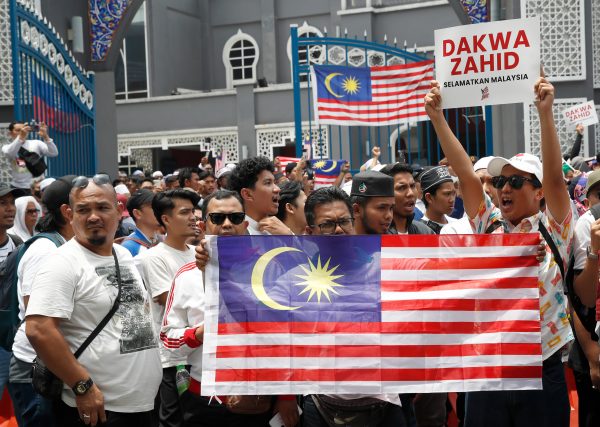The PH coalition maintained its hold on three states — Selangor, Penang and Negeri Sembilan. The national opposition, Perikatan Nasional (PN) and its component Malaysian Islamic Party (PAS) achieved supermajorities in its three states — Kedah, Kelantan and Terengganu.
While retaining control of its states gave Anwar a political reprieve, PN made significant inroads into all three west coast states. The coalition was denied a two-thirds majority in Selangor, where PN increased its number of seats from one to 22. Similar seat increases took place in Penang and Negeri Sembilan. The PH coalition also managed to retain two seats in the recent Johor by-elections.
While PAS’ strongholds remain the predominantly Malay states in the north and east coast of Peninsular Malaysia, support for PN grew even in semi-urban parts of Selangor, located around the periphery of Klang Valley’s urbanised centre.
Several reasons account for this ‘green wave’, including the rise of Malay nationalism, which PN leaders leaned into during both the GE15 and recent state elections. But the decline of the United Malays National Organisation, the lynchpin of BN, was plagued by fragmentation and corruption allegations, which may have also played a role in PN’s success.
With an ethnically and religiously majoritarian opposition gaining Malay support, the PH coalition has chosen a more conservative route to shore up Malay support. In the lead-up to the state elections, the federal government ordered a ban on Swatch LGBT pride-branded watches and cancelled a music festival after a band’s lead singer gave a pro-LGBT speech and kissed his male guitarist on stage.
The federal government has also increased the budget and roles of JAKIM, the federal agency that oversees Islamic affairs. Anwar’s government is also moving to restrict the use of the word ‘Allah’ by non-Muslims in Peninsular Malaysia, and aims to table controversial legislative amendments to elevate the role of Islamic Syariah law in the criminal justice system.
Anwar’s moves to strengthen his position among the Muslim majority sets up a potentially a slippery slope towards PN continuing to set the political agenda and tone, which PH–BN is then forced to respond to.
A more significant threat to the reform agenda might emerge if, to placate and win over Malay support, the government delays much-needed economic and institutional reforms. While the government has approved the long-awaited Freedom of Information Act and Government Procurement Act, concrete steps must be taken to see them enacted in Parliament to avoid potential resistance.
The mid-term review of the 12th Malaysia Plan proposes introducing targeted subsidies for electricity, diesel, petrol and social assistance. Fiscal consolidation is urgent given the country’s fiscal squeeze and high public spending in recent years. If it can see this through, this would be a major success, since subsidy rationalisation might impair Anwar’s popularity amongst low-income households struggling to cope with increased costs of living. .
Implementing the Government Procurement Act is crucial for enhancing transparency and competitiveness in public procurement. But the timeline and drafts of the law have not yet been viewed by external stakeholders and it might be seen as an affront to existing procurement practices, which have been a source of race-based patronage in the past.
It is unclear if Anwar’s government will have the confidence to reform the large swathe of government-linked companies (GLCs) in Malaysia. Many of these were set up to empower the Bumiputera (Malay and other indigenous) communities but have become victims of patronage. GLCs that are uncompetitive and underperforming pose a financial strain on the public sector.
A comprehensive financial and performance review of all GLCs, especially those that are not publicly listed and hence not strictly scrutinised by regulators such as Bursa Malaysia and the Securities Commission, is necessary to determine which ones should continue to exist. The culture of political appointments to the boards of GLCs, which Anwar’s administration has continued, will need to end.
The government has launched ambitious economic plans, including the Madani economy framework, National Energy Transition Roadmap, New Industrial Master Plan and the mid-term review of the 12th Malaysia Plan. Political reform will also be needed to minimise corruption.
To see these strategies through, structural reform efforts are necessary. But if these reforms are seen as eating into the economic share of Malays, Anwar’s administration will face resistance. The better approach would be to demonstrate that these reforms will expand economic opportunities for all and provide a time-bound financial cushion to those hardest hit. The upcoming 2024 Budget Speech, where some of the government’s economic agenda will be announced, is an opportune time to do so.
PH’s reform position is becoming difficult to maintain, particularly after appointing UMNO’s scandal-ridden President Zahid Hamidi as Deputy Prime Minister. The recent action by the public prosecutor to discharge him from all corruption charges is surprising. In Malaysia, the Offices of the Public Prosecutor and Attorney General are held by the same person. If the government does not heed the decades-long call from civil society to separate the two offices to avoid political interference in legal matters, PH will struggle to reclaim its moral high ground. The Minister of Law and Institutional Reform has recently announced plans in this regard, but it needs to be expedited even more urgently given the circumstances.
In playing to the gallery, the current government risks portraying itself as lacking the impetus to reform, which could narrow Anwar’s options. Malaysia must reignite its reform agenda quickly, while communicating the economic benefits to the Malays. But this will prove challenging, especially with an increasingly strong opposition that has used racially divisive language to elevate Malay insecurity.
Dr Tricia Yeoh is CEO of the Institute for Democracy and Economic Affairs (IDEAS), Malaysia, and Campus Visitor at the Australian National University.

